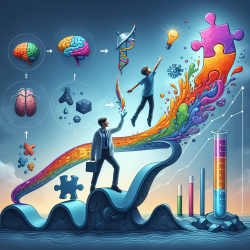Revolutionizing Autism Treatment: The Promise of IVIG Therapy
Autism Spectrum Disorder (ASD) affects approximately 2% of children in the United States, with behavioral therapy being the standard treatment. However, many children experience suboptimal outcomes, highlighting the need for complementary medical therapies. Recent research has uncovered a promising avenue: intravenous immunoglobulin (IVIG) therapy, particularly for children with autoimmune encephalopathy (AIE).
Understanding the Research
The study titled "Intravenous Immunoglobulin for the Treatment of Autoimmune Encephalopathy in Children with Autism" presents compelling data. It screened 82 children for AIE, with 80 diagnosed with ASD. IVIG was recommended for 60% of these children, and 38% received the treatment. Remarkably, 90% of parents reported improvements, with 71% noting enhancements in multiple symptoms.
Key Findings and Implications
- Statistically significant improvements were observed in the Social Responsiveness Scale (SRS) and Aberrant Behavior Checklist (ABC).
- Immune biomarkers, such as the antidopamine D2L receptor antibody, were linked to changes in the ABC, suggesting potential predictors of treatment response.
- Despite common adverse effects during the infusion period, only 6% discontinued due to these effects.
These findings suggest that IVIG therapy could be beneficial for a subset of children with ASD, particularly those with specific immune biomarkers. However, practitioners must consider the potential for adverse effects and the need for further research to refine treatment protocols.
Encouraging Further Research
While this study provides a strong foundation, larger cohorts are needed to explore immune biomarkers in greater detail. Practitioners are encouraged to contribute to this growing body of research, potentially transforming the landscape of autism treatment.
Conclusion
IVIG therapy offers a promising new avenue for improving outcomes in children with ASD, particularly those with underlying autoimmune issues. As we continue to explore this treatment, the potential for creating meaningful change in the lives of children and their families is immense.
To read the original research paper, please follow this link: Intravenous immunoglobulin for the treatment of autoimmune encephalopathy in children with autism.










